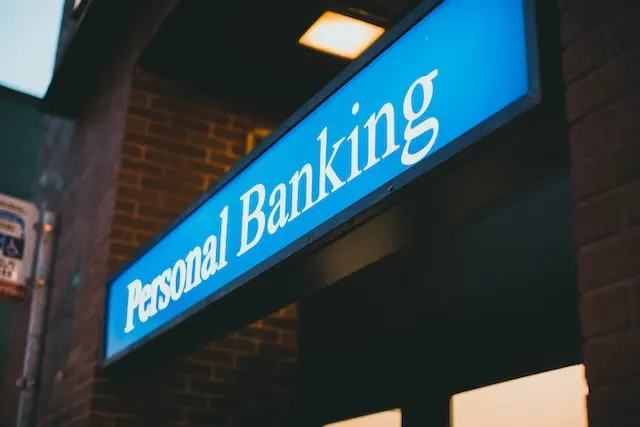If you are a business owner, you need to establish a relationship with a business banker and open a business checking account.
Retail (personal) and business banking are very different. Retail banking is geared towards the general population and is limited to deposits, access to ATMs, and some lending such as home loans and credit cards. There is no personal connection to the bank or an individual at the bank. You are simply one account out of thousands.
Business banking is much more robust and focused exclusively on your needs as a business owner. Business banking is very personal because you have a direct point of contact with a banker who has a vested interest in your growth because the more your business grows, the more services you will need from the bank.
Who Needs a Business Checking Account?
If you own a business, you need to have a business checking account. In fact, a bank may have policies against using a personal account for business purposes and may close your account if it suspects you are violating its policy by using a personal account for business purposes.
Business accounts give your business legitimacy and flexibility, but more importantly, they allow you to keep your business and personal assets separate. As a business owner, you should never commingle your personal accounts with your business accounts. There are also many business-related activities described below that you simply cannot do with a personal checking account.
You should open an account with a bank that has expertise in your industry. For example, if you are a farmer, manufacturer, or online retailer, you have very unique needs and there are banks that offer specific services catered to your needs. There are also some banks that do not work with certain industries (such as marijuana or adult-related businesses) so make sure your banker knows your business well.
Community banks are excellent for small businesses and should be your first choice when starting your business. Community banking is built on relationship banking where your bank and personal relationship manager understands your business and can offer you the services you need to help you grow and prosper.
Business banking features
Business bank accounts are more complex than retail accounts. When deciding where to bank and which type of account to open, it’s important to understand what services you need.
Factors to consider as you shop for the best bank based on the complexity of your business:

- Branch access: do you need to go into a branch or do you conduct your business entirely online?
- Merchant Services: Will you accept credit card or ACH payments? If so, some banks have more favorable terms and fees for merchant services.
- Wire transfers: Does your business receive or send a lot of wires? If so, are they mostly domestic, international, or both? Some banks charge for both incoming and outgoing wire transfers.
- Checks: Will you write and/or receive a lot of checks? If you write a lot of checks, your bank may provide you with free checks with your logo on them. If you receive a lot of checks, your bank may give you a check reader to quickly deposit checks at your office.
- Business Loans: will your business need loan(s) for equipment, lines of credit, or accounts receivable financing, acquisition, or just general operating funds? Loans are the primary business of a bank and it’s how banks make money, but not all banks offer the same type of loans.
- Cash: will your business transact a lot of cash? Will you need an armored car for transporting cash? Also, beware of Know Your Customer (KYC) rules, including Cash Transaction Reports (CTRs) and Suspicious Activity Reports (SARs). Banks are very cautious of cash-based businesses because there is a risk of money laundering.
- Coins: do you deal with large volumes of coins? If so, some banks may not be equipped to handle coin deposits/withdrawals. Some banks may also charge you extra for handling coins.
- Lockbox: this is a service for businesses that receive a large volume of checks or payments by mail. The lock box is operated by the bank to collect and process checks and payments to increase the cash conversion cycle.
- Positive Pay: this is a service that allows you to review each check presented to your bank for payment before it’s paid. Positive pay helps to minimize fraud and improves internal controls. Not all banks offer positive pay.
- Foreign Currency: will your business transact in foreign currency for either payments and/or receipts?
Personal versus Business Checking Accounts
Here are some of the key differences between personal and business checking accounts.
Personal Checking Accounts Features
- Use your Social Security Number to open an account
- Minimal documentation needed to open an account
- Low monthly minimum requirements
- No fees
- Free ATM withdrawals
- Easy to open
- No personal relationship with the bank or a banker
Business Checking Accounts Features
- Opening the Account: Use your company’s Employer Identification Number (EIN) instead of your Social Security number to open an account.
- Balance Requirement: Usually have higher minimum balance requirements.
- Harder to open: Some basic documents such as your ID and EIN are required for all types of accounts, but depending on your entity structure, the bank may require certain documents to open a business account.
- Limited transactions: a bank may limit the number of checks they process, the cash you can deposit, or the coinage they may accept.
- Accountant access: you can grant your CPA limited accountant access to your business accounts so that you can control what your CPA can view and transact.
- Employee access levels: you can grant employees various access levels to let them see only what you want them to see. For example, if you have an internal bookkeeper and you want them to only see transactions and statements, but not allow them to move money or change the mailing address, you can do that without having to add them as a signer on the account.
- Employee debit cards: can give employees debit cards with spending limits and block prohibited transactions (i.e. food, entertainment, etc.)
- Positive pay: this is a feature to prevent fraud in your account by matching checks written from your account against checks you have previously authorized.
- Merchant services: this allows you to accept credit card and ACH payments from customers.
Documents needed to open business checking accounts

Banks will require certain documentation to open business accounts depending on the type of entity.
- Corporation:
- Articles of incorporation
- Certificate of good standing from your state of incorporation
- Board resolution identifying who is authorized to open accounts on behalf of your corporation
- Copy of business license or government-issued ID; and possibly other items.
- Partnership:
- Articles of the organization
- Operating Agreement
- Valid business license; and possibly other documents.
- Sole proprietorship:
- Your SSN/EIN; DBA (if applicable); and anything else the bank may require.
7 Reasons Why You need a Business Checking Account
1. Much more flexibility than a personal checking account.
2. Separates your personal and business assets.
The IRS requires businesses to maintain accurate records and if you commingle your personal and business accounts, it becomes murky.
3. Streamlines your taxes
By having all of your business transactions in one account, it makes it easier come tax time to calculate your total income and expenses.
4. Gives your business legitimacy
5. Creates a banking relationship
As your business grows, you will need a bank that grows with you by offering the services you need. Small growing businesses usually start with lending needs such as lines of credit, secured and unsecured loans; standby letters of credit, commercial real estate loans, accounts receivable financing, equipment loans; and more. Such lending services also help build business credit.
6. Your bank may require it
7. Allows for the acceptance of credit cards and other forms of payment.
Checking Accounts as your Business grows
As your business grows, you will find the need to have multiple business checking accounts to serve different purposes. You may have an operating account for basic operating expenses; a payroll account for running payroll that is only accessible to your payroll/accounting department; or an account for a separate business line or division. Large businesses have several accounts to let them maintain control and provide operational efficiency.

